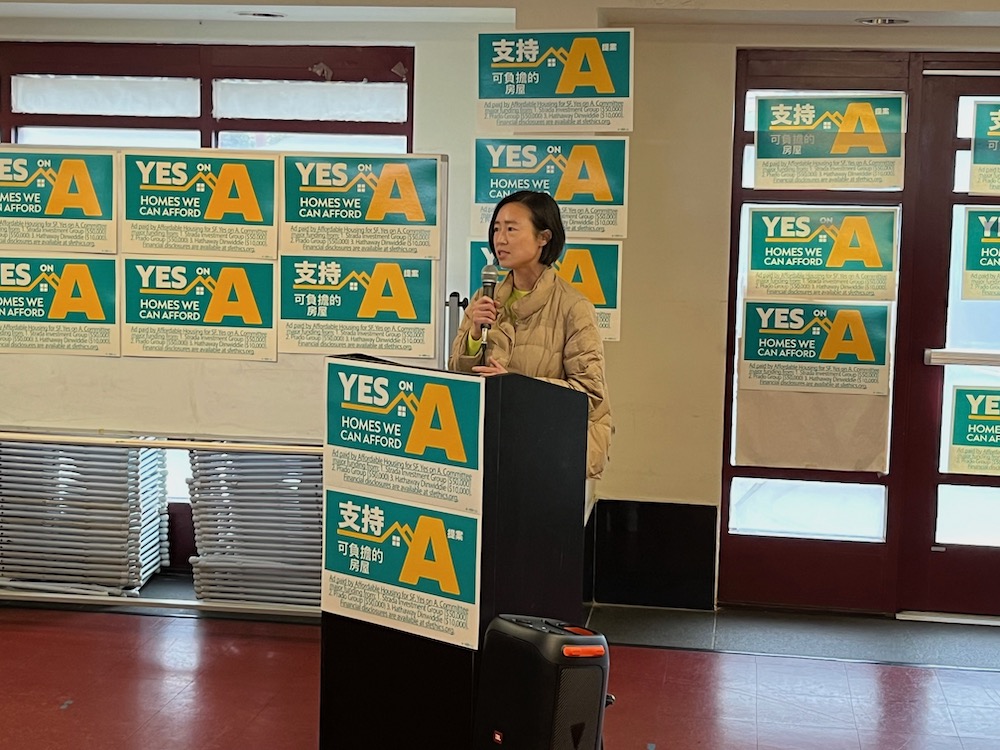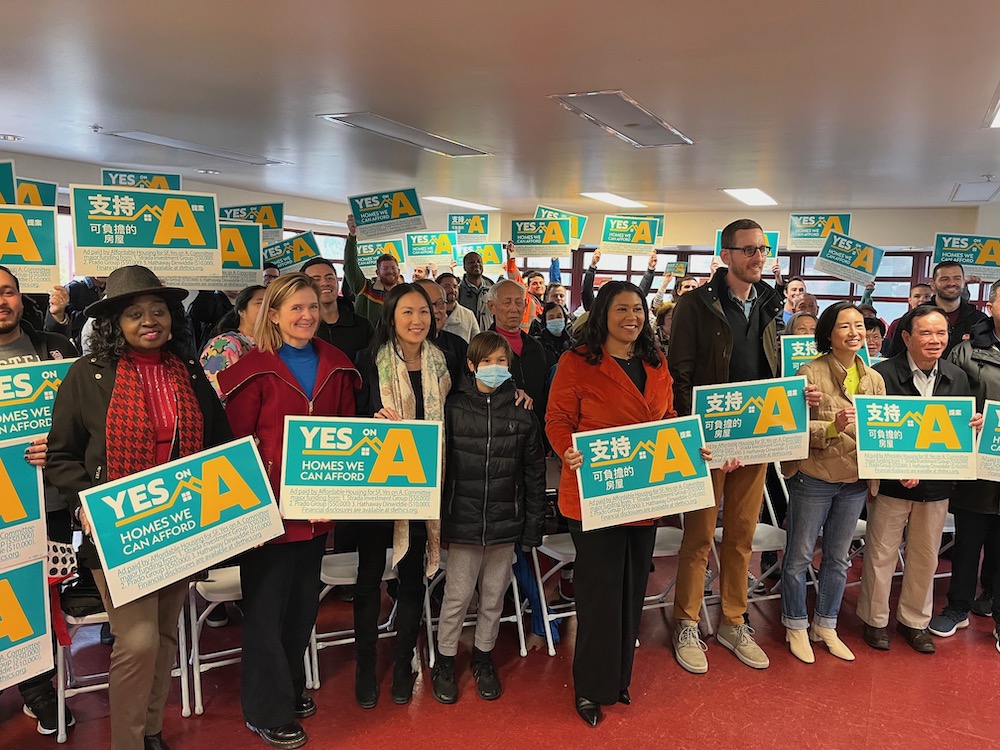The message that came from the Proposition A kickoff this weekend was simple: Housing is a bitterly divisive issue in San Francisco, but just about everyone supports a new bond for affordable housing.
“We are all on the same page here,” Sup. Connie Chan told the crowd that packed the clubhouse at Portsmouth Square.
“It’s rare to be in a room where everyone is there and everyone is together,” state Sen. Scott Wiener, who has not always been an ally of affordable housers and often disagrees with Chan, said.

Prop. A is a modest, $300 million bond that would help the city build affordable housing without raising anyone’s property taxes or rent.
It’s one small step in the process of trying to meet the state’s goal of 46,000 new affordable units in the city in the next seven years. If all goes according to plan, we may see a $20 billion regional housing bond on the ballot in the fall.
Another measure likely for fall 2024 would reduce the vote requirement for housing bonds to 55 percent, making it way easier for that large bond to pass.
The fall bond would raise property taxes—and depending on the jurisdiction, landlords might be able to pass through some of those costs to their tenants.

Prop. A is much less ambitious in part because the city doesn’t typically issue new bonds until old ones are paid off—precisely to avoid the political challenge of raising taxes not just on property owners but on renters. The city allows landlords to pass through half the cost of bond-driven tax hikes to their tenants.
Bonds now need a two-thirds vote to pass.
The challenge for Prop. A is that, although most city leaders and organizations support it, the voters are in a very crabby mood this year. Polls show that the mayor is unpopular, the Board of Supes is unpopular, City Hall is unpopular … and even though affordable housing in general is popular, getting to two-thirds is never easy. And since there is no real presidential primary in California (that is, no Democratic primary, and there aren’t many Republicans in San Francisco and they will vote against any new spending anyway), and no contested state Legislature primaries, turnout will be critical.
I suspect the Barbara Lee for Senate campaign will get a fair number of progressive voters to the polls.
But Mayor Breed, who sponsored the bond along with Sup. Aaron Peskin, has potentially hurt her own cause by putting three measures on the ballot that are designed to bring out conservative voters. The mayor’s allies know that the endorsement of the local Democratic Party will be key in the fall, and she’s counting on voters who support the cops and want to attack poor people also voting for her slate for the Democratic County Central Committee.
So for both the progressive DCCC slate and Prop. A, voter turnout, particularly on the East Side of town, could make the difference.
Full disclosure: My son Michael works for the Yes on A campaign.





